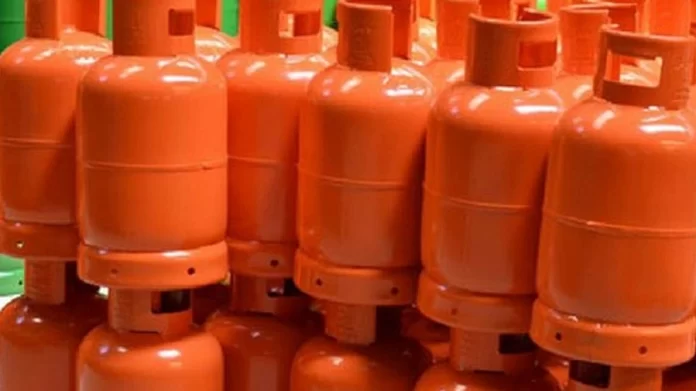Former President Olusegun Obasanjo, has charged stakeholders in the Liquefied Petroleum Gas (LPG) sub-sector, popularly called cooking gas to ensure that they put Nigeria’s interest first.
Obasanjo made the plea at the 2nd West Africa LPG Expo and Nigerian Liquefied Petroleum Association (NLPGA) Summit 2022 held in Lagos at the weekend.
The ex-president’s plea came on the heels of the rising cost of cooking gas currently at about N12,000 per 12. kg cylinder in parts of the country.
He argued that the domestic market has so much potential as the fastest-growing LPG market globally.
‘‘However, there are challenges which I will call on all stakeholders to come together and resolve. These include but are not limited to; more volumes from other domestic producers to the ever-rising demand/supply, infrastructural development to aid supply to the last mile, and the issue of regulations such as VAT, among others that make affordability by the common man a challenge,’’ the former leader said.
He encouraged other oil and gas majors to remain committed and look at how to develop the local liquified petroleum gas sector as a way of showing appreciation to a country in which they have benefited enormously.
Obasanjo recalled that the leadership of NLPGA while on a courtesy visit alluded to the role that his administration played in promoting LPG use in the domestic market to what it has become today.
He said that the policies his administration initiated in 2005 leading to the 2007 intervention, assisted in not only maintaining gas supply sustainability of alternative energy but significant than the industry has today, but also helped in managing the risk of deforestation, stoppage of health and safety risks associated with the use of kerosene and firewood.
‘‘Let me start by commending the organizers of this conference for the kind words they had shared in the past recognizing the impact that has been made so far by an initiative I took when I was the President, to direct that some of our liquefied petroleum gas be retained locally for domestic use.”
Obasanjo said the government under his leadership saw the Nigerian Gas Master Plan as a major interventionist concept to move the gas sector from its essentially dormant status in 2006 to a market-based system with willing sellers and willing buyers, realizing the full potential of the sector for the benefit of all Nigerians.
The former president pointed, out that it was clear that the major players were at that time more interested in the global market and this led to the Domestic Supply Intervention Policy.
‘‘Achieving a rapid growth in supply to drive the market was unlikely to happen on its own with the then structure of the sector, which was dominated by oil-centric International Oil Company (IOCs) with little appetite for domestic gas market development.
According to him, the domestic supply intervention policy was necessitated to jump-start sustainable supply to the domestic market, the main objectives being to, enhance living standards, reduce deforestation and rural-urban migration with its associated national security issues, and reduce household energy poverty and serve to promote industrial growth.
He disclosed further that, the thrust of the policy was to create a minimum level of supply by intervention. However, beyond this threshold, he said, it was expected that the basis for a fully competitive market would have been established and market forces will thereafter drive the growth of supply and demand in the market.
In essence, he maintained that the domestic supply intervention policy was a transitional policy intervention aimed in the short term at driving supply availability to a level that could sustainably support a fully competitive gas market.
‘‘The domestic supply intervention policy required all associated and nonassociated gas reserves holders to dedicate gas supply to the domestic market in the first instance and thereafter export to the international market.
On NLNG interventions, he said ‘‘I have heard from the NLPGA that since 2007 inception of the Domestic LPG supply program till date, the Nigeria LNG Ltd. has stood tall above its peers in the discharge of supporting the local sector.






